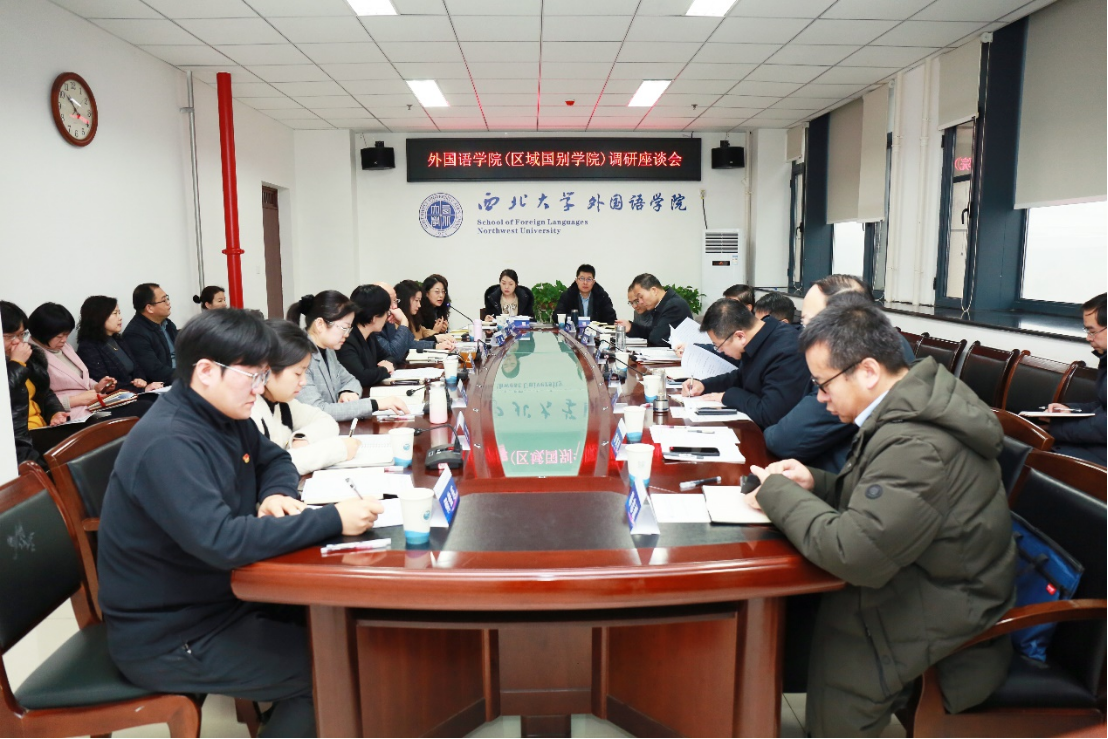
On the morning of January 18, 2024, Jiang Lin, the Party Secretary of the university, and Sun Qingwei, the Deputy Secretary of the Party Committee and Vice President (in charge of administrative work), led a delegation to our school for research and discussion. Lü Jianrong, the Deputy Secretary of the Party Committee of the university, accompanied the delegation. Heads of departments such as the Party (University) Affairs Office, Human Resources Department, Academic Affairs Office, Social Sciences Office, Graduate School, and Development Planning and Discipline Construction Office, as well as members of the school's party and government leadership team and representatives of teachers and students attended the discussion. The meeting was chaired by Wang Jun, the Secretary of the school's Party Committee.
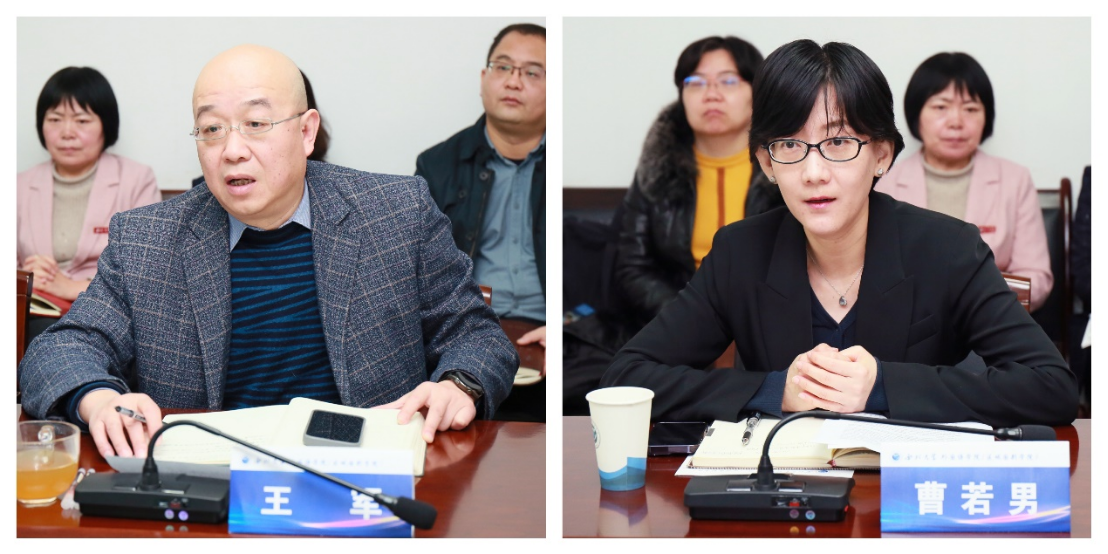
Wang Jun extended a warm welcome to the visiting leadership team on behalf of the school. Dean Cao Ruonan, starting from the school's basic situation, education and teaching, and discipline construction, delved into the opportunities and challenges faced by the school in recent years' reform and development. She thoroughly analyzed the problems and difficulties in discipline development, research innovation, and high-level talents recruitment, and emphasized on clarifying new ideas and measures for the next steps of development. She expressed that the school will focus on creating a competitive and competent training environment, support the cultivation of top talents, and fully focus on internal strength and external support, grasp the fundamentals and seek innovation, and continuously enhance the construction of the school's cultural connotations. Wang Jun reported on the school's focus for the new semester and future development plans.
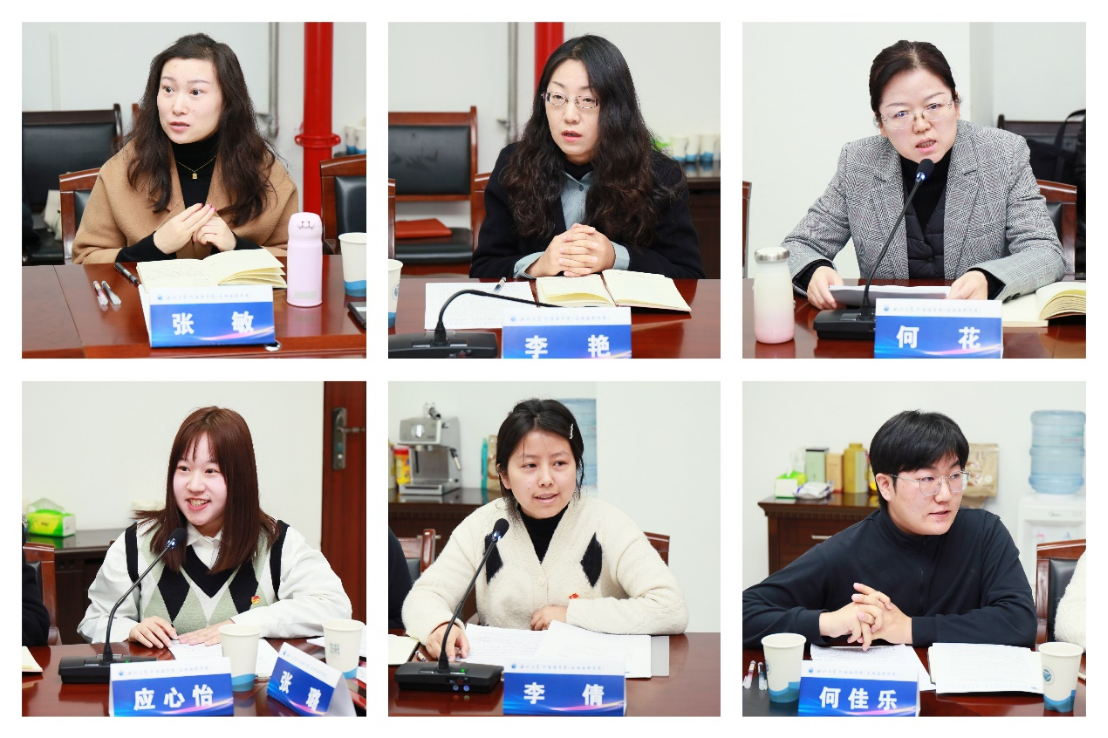
During the research, the attending faculty and student representatives, based on the development of the school and their own work and study realities, provided suggestions and ideas regarding reforms in college foreign language teaching, discipline development, research innovation, professional discipline competitions, talent cultivation, and humanistic care.
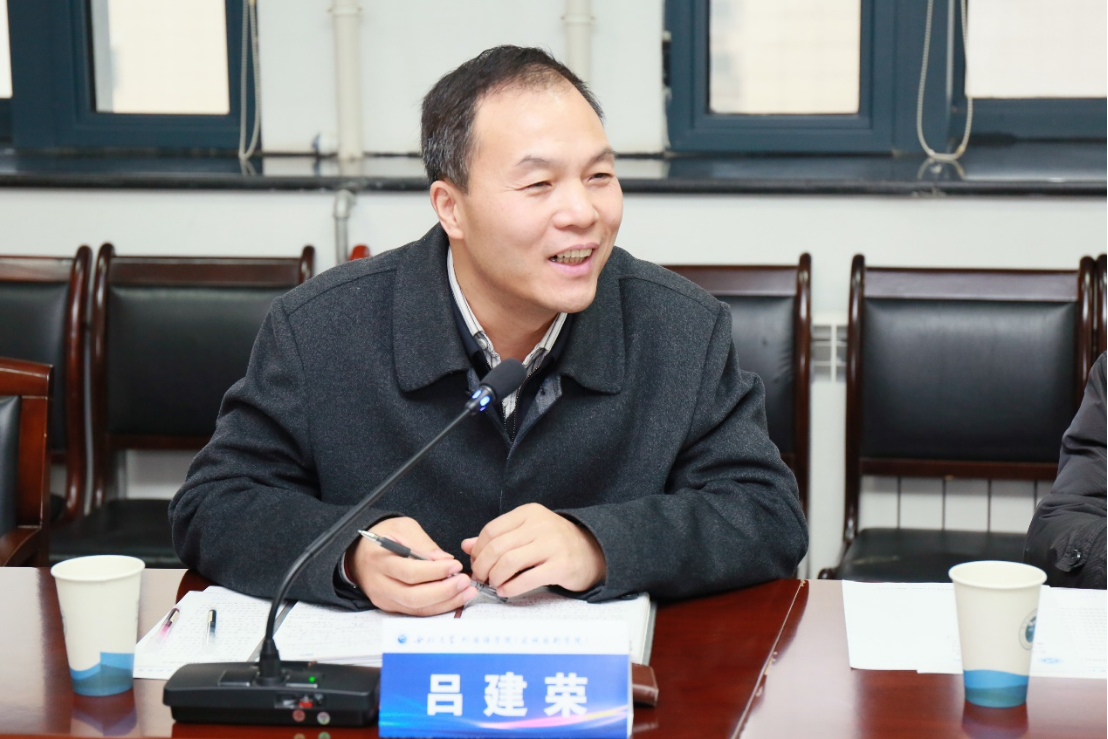
Lü Jianrong affirmed the achievements of the school in cultural inheritance and innovation, as well as in the field of area studies. He also provided suggestions and guidance on the direction of “Foreign Language+” education, teaching reforms, and student employment and entrepreneurship.
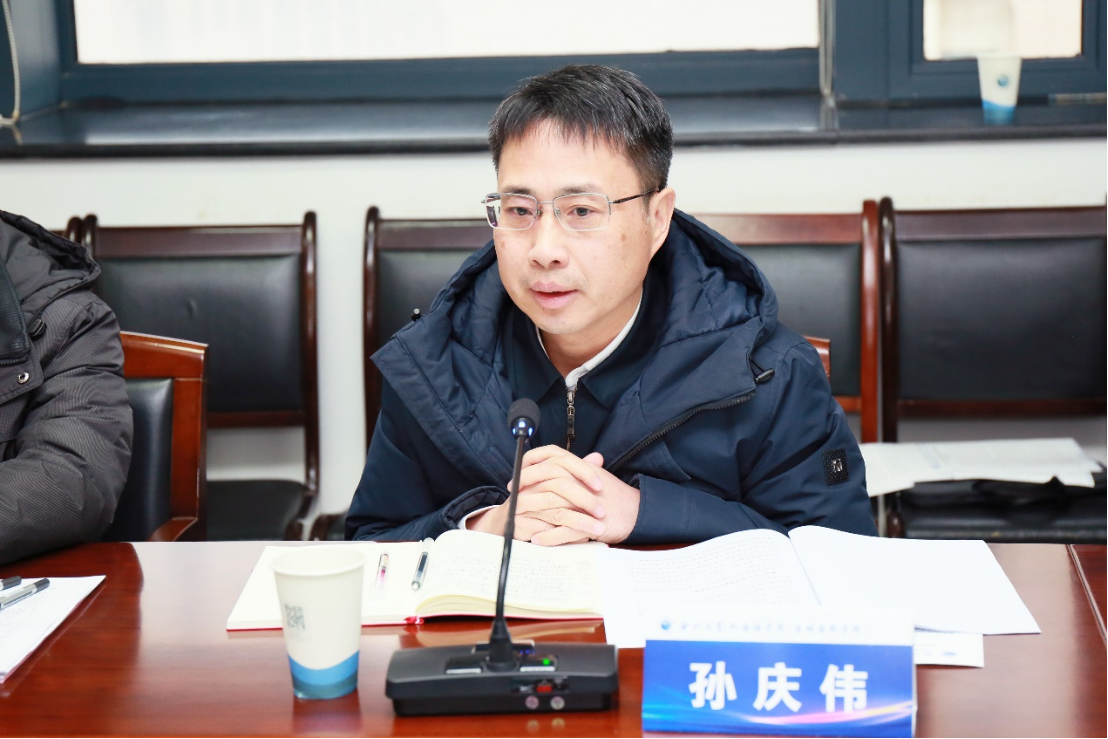
After listening to the report, Sun Qingwei affirmed the achievements of the school development in recent years and put forward five expectations: Firstly, the School of Foreign Languages should adhere to its foundation, find its positioning, focus on teaching, and strengthen the basic support functions of foreign language disciplines. Secondly, actively explore new paths for teacher professional development, cultivate teaching masters, assist in improving students' comprehensive literacy, and implement the fundamental task of moral education and talent cultivation. Thirdly, he hopes that through enrollment, program offerings, and refined talent cultivation models, efforts will be made to improve the overall English proficiency of the entire university. Fourthly, through the promotion of Chinese academic translation, telling good stories about Shaanxi and China, strengthen the construction of international communication capabilities, and seek research growth points. Fifthly, taking the development strategy of the Belt and Road Initiative and area studies as opportunities, coordinate resources, and empower research and innovation.
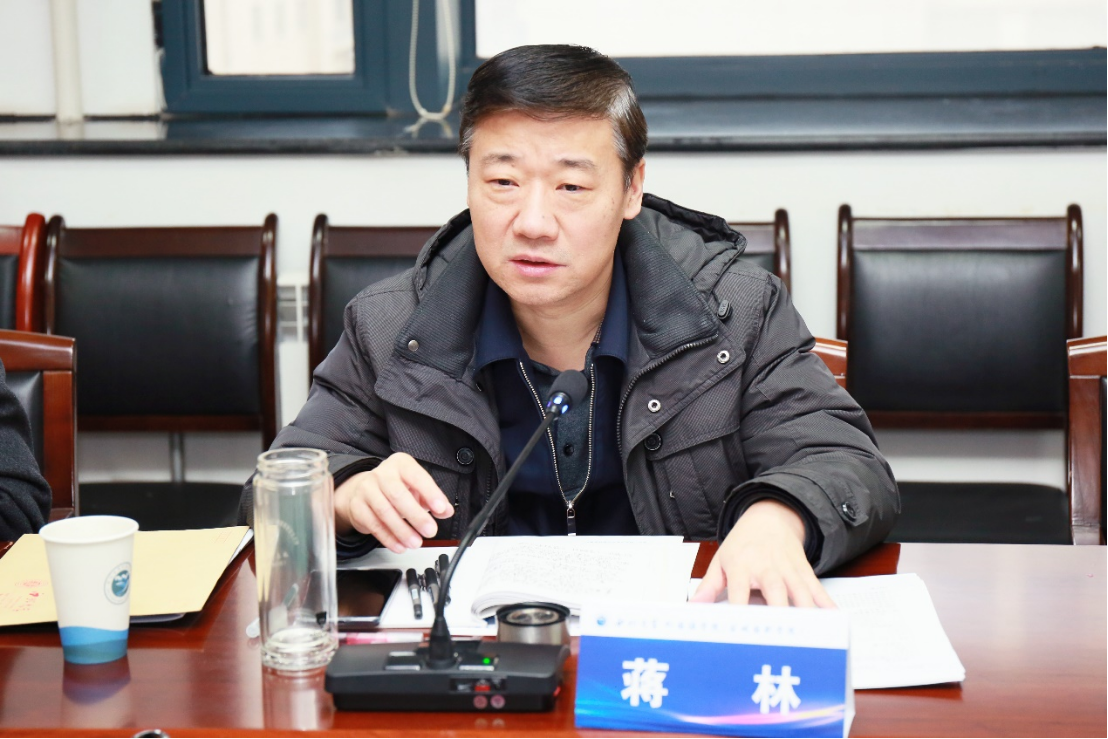
In the discussion, Jiang Lin expressed that through in-depth communication, he deeply felt the vigorous and upward spirit of the faculty and students of the School of Foreign Languages. At the same time, he put forward five requirements for the next steps of work: Firstly, it is necessary to highlight the functional importance of university public English teaching and effectively help students solve practical problems such as professional exams, employment, and entrepreneurship. Secondly, by improving students' comprehensive level of overseas exchanges and their ability to communicate internationally in disciplines, it will help enhance the internationalization level of the entire university and the global competency of teachers and students, and tell our own stories well.Thirdly, it is necessary to continue to promote area studies, explore new growth points and focus areas in disciplines. Fourthly, regarding employment and entrepreneurship for university students, all staff should participate and make systematic plans and considerations for employment work with dedication and effort, and comprehensively enhance the competitiveness of the talent market. Fifthly, increase policy support and platform support, attach importance to the development of minority language disciplines, and serve the construction of the national “Belt and Road” initiative.
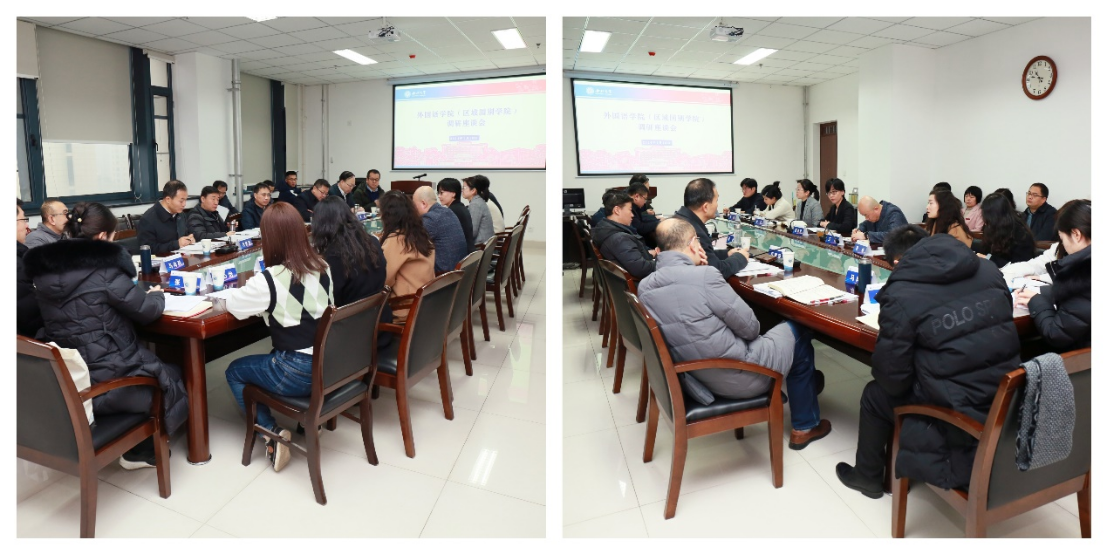
This research and discussion event, the first time the university leadership has deeply involved in guiding the work of the school after the 14th Party Congress and the 12th Education Congress of the university, demonstrates great concern and support for our school's work. It also further indicates the direction for our future development. The school will promptly disseminate the spirit and important measures of this research and discussion, as well as recent related work meetings, widely throughout the school. This will further unify our efforts, consolidate our foundation, prompt us to seek innovation, and implement reform and innovation to propel various aspects of the school's work to new heights during the “14th Five-Year Plan” period.